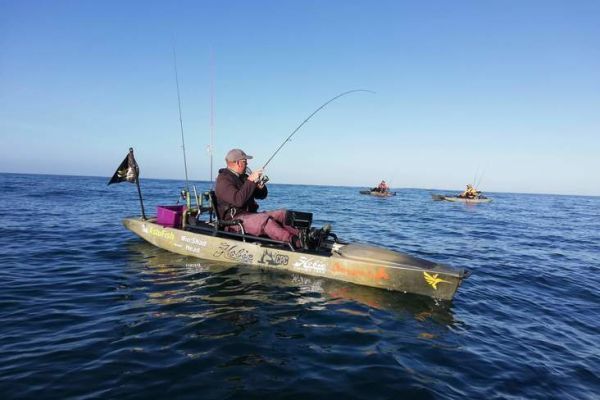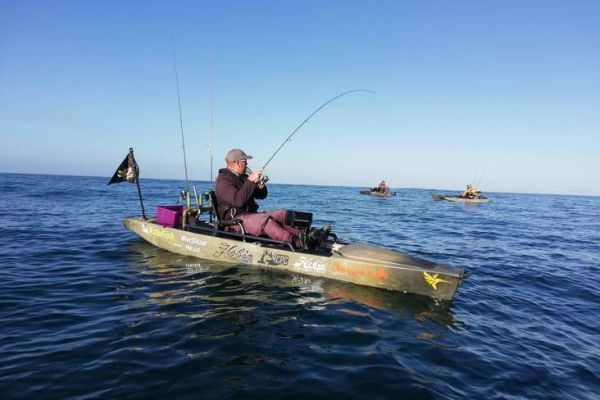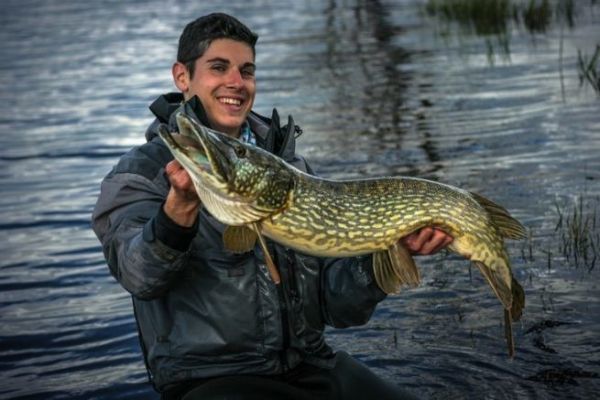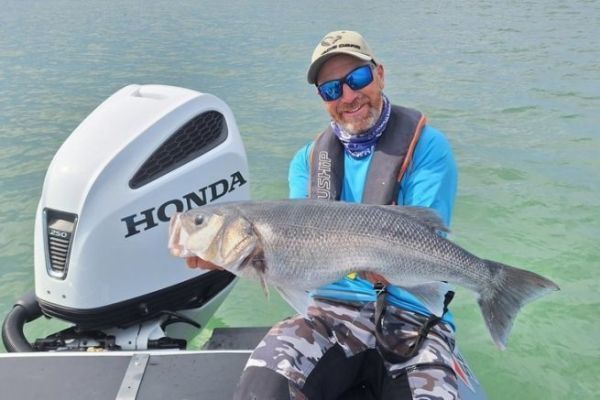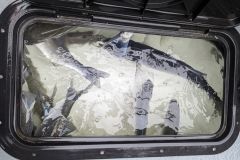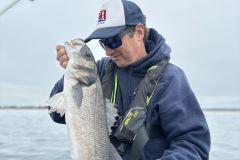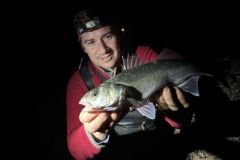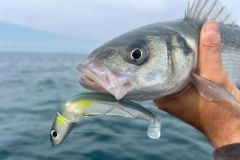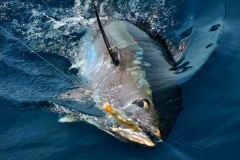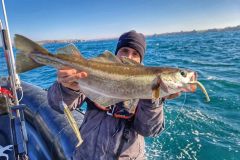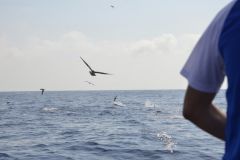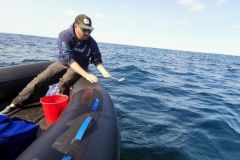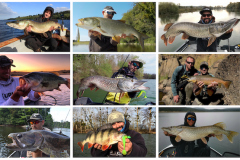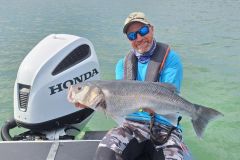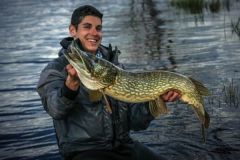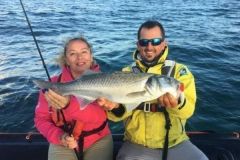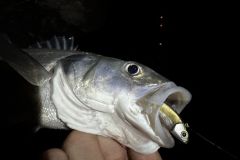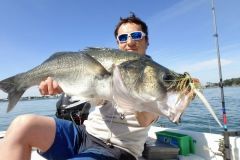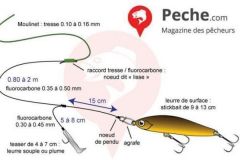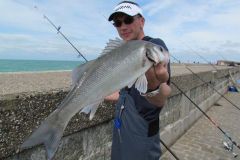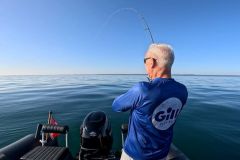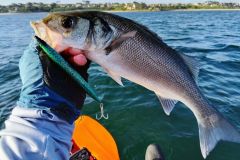Hello Vincent, could you first introduce yourself to Fishing.news readers?
Vincent Quiniou -My name is Vincent Quiniou, I'm 44 years old and I've been a fishing guide for two years. After 20 years as a fireman, I took advantage of my career change to take my BPJEPS at Caulnes high school and then set up my own "Fish'n vince" guiding company.
Why did you become a fishing guide?
I've been fishing since the age of 6. It's my great passion, and during my military career and my years as a volunteer fireman (which I'm still doing, by the way), I've run a lot of courses at different levels with different audiences. It seemed logical to me to combine all this into a single profession, that of fishing guide.
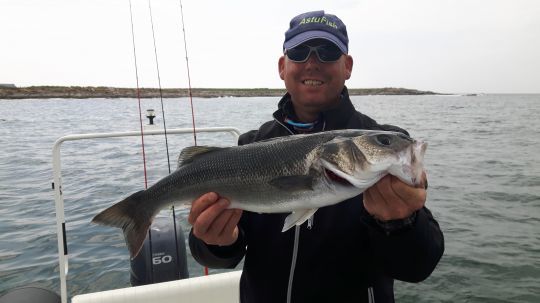
What kind of guidance products do you offer?
My products are varied. I offer both full-day and half-day outings in the sea and in freshwater.
During the high season, I work mainly at sea in South Finistère (Concarneau Bay and the Glénan Islands).
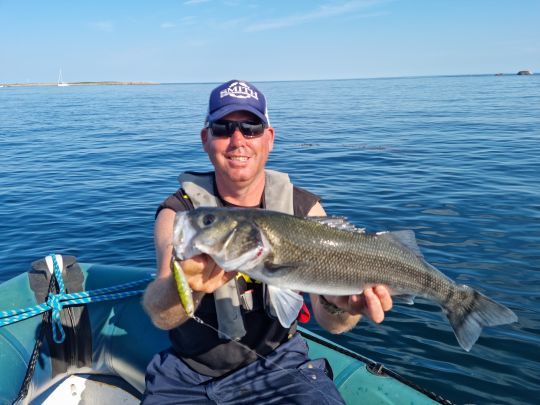
Out of the summer season, I concentrate on freshwater: lakes within 1 hour's drive of my home, including several lakes in the Côtes d'Armor region, Lake Saint Michel and the Nantas canal in Brest.
I have a RIB for the sea. For freshwater, I specialize in offering services in Hobie pedal kayaks. I really like this type of craft, for its closeness to nature and its discreet approach.
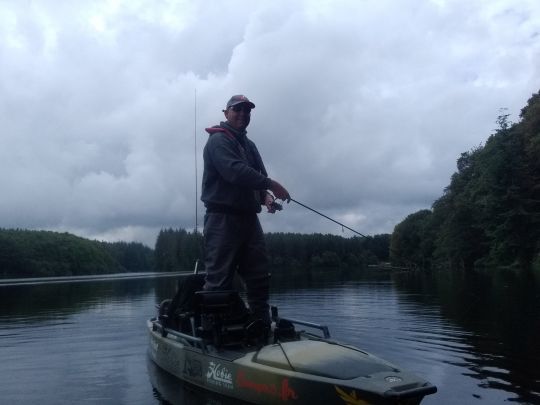
What does being a fishing guide mean to you?
First of all, it's an opportunity for me - who doesn't dream of having an office like ours? Secondly, it's a profession that should inspire trainees in the management of our environment. We have to preach the good word for a more serene fishing future, and that means regulations and mentalities. All this must be done while demonstrating the basics of fishing techniques and optimal safety rules. So it's also a job with responsibilities.
Do you fish or not when you're guiding?
First and foremost, a guide must look after his trainees. When I pick up a rod, it's because the fishing is difficult and I'm trying to find the best combo for the trainees' success. It can also happen that it's the trainee who asks me to fish, in order to feel less alone or perhaps less observed.
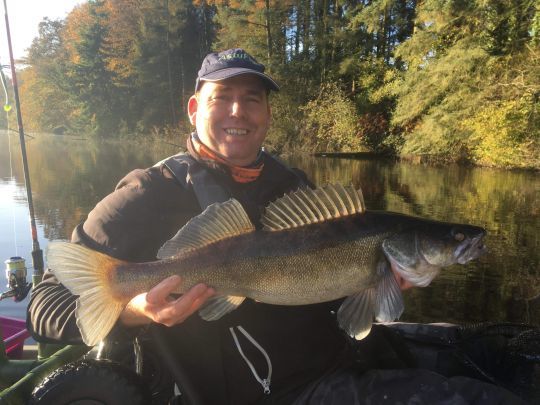
What do you do when you're not guiding?
I look after my children, my vegetable patch and the garden. I also work shifts at my fire station.
How do you see guiding in France?
Attitudes are changing, and people are starting to call on us, particularly in view of the new legislation, which is evolving very rapidly. They're counting on us to help them learn or improve their techniques, but they're still finding it hard to accept that hiring a guide doesn't necessarily mean "catching a lot of fish".
Price is still an obstacle for many people, and this is reflected in the co-boating groups that are springing up all over the place, but which are not at all supervised and can give rise to abuses... There are bound to be more changes in the years to come, but let's hope they're in the right direction for us.
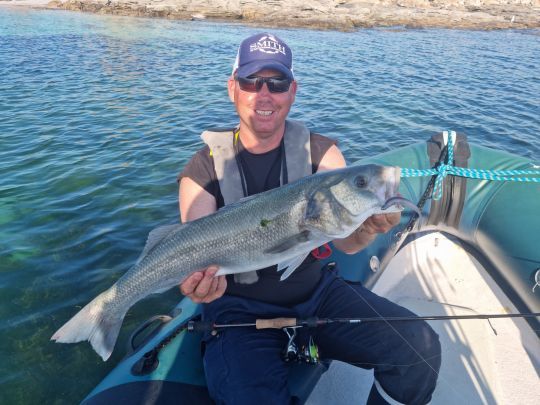
What advice would you give to people wishing to embark on this adventure?
First of all, good luck, it's hard to make this your sole job for the whole year. The choice is yours, but get as much help as you can. Finally, don't neglect communication - it's essential, especially when you're just starting out.
As a fisherman, what's your dream?
I've been dreaming of traveling to fish for a long time, and I tell myself that it will come as soon as the children are grown up. I also dream of setting up as a guide in another country like Portugal, Spain, Ireland or the Netherlands.

 /
/ 